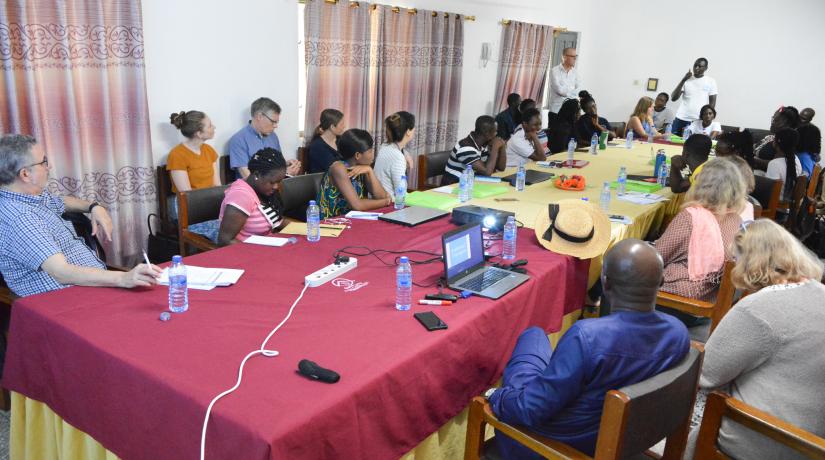Image

Posted On
Monday, April 8, 2019 - 13:58
Body
Coastal marine ecosystems are threatened by multiple natural and human-induced stressors. Climate change and other anthropogenic stressors such as pollution, habitat loss and over-exploitation of resources are key examples. Unfortunately the cumulative effects of these stressors are less understood for tropical coastal marine ecosystems. As part of measures to contribute to solutions, management and mitigation actions in relation to the sources and effects of the stressors on the tropical coastal marine environment, the Centre for Coastal Management, held a one-week short course from 25 – 30 March, 2019 to train and build research capacity among students mainly postgraduates and professionals on the sources and impacts of the pollutants in the Tropical Marine Environment. The short course, dubbed “Multiple Stressors in the Tropical Marine Environment”, was held at the University of Cape Coast (UCC).
The HOTSPOT project(link is external) is a four-year research collaboration between Ghanaian and Danish researchers funded by the Danish International Development Agency (DANIDA) and implemented by the Technical University of Denmark (DTU) and the University of Cape Coast’s (UCC) Centre for Coastal Management (CCM). The project also includes private sector partners from both Denmark and Ghana.
The short course is among a number of modes of communicating and disseminating the research outcomes of the HOTSPOT project, with postgraduate research students and professionals as the target audience. Eighteen postgraduates and professionals comprising both international and Ghanaian participants participated the course. The course modules included topics on experimental design, climate change, invasive species, pollution, eutrophication, fisheries management and systems analysis approach to coastal resource management.
Participants were involved in intense combination of lectures, laboratory experiments and field visits that sought to expose students to a hands-on experience of the theories learned. Laboratory experiments mimicked the impact of climate change and oil pollution on zooplankton communities as well as phosphorus concentrate determination as a measure eutrophication levels.
A field trip to the traditional fish-landing quay at Elmina also gave students and officials visiting from the DANIDA Fellowship Centre an opportunity to witness the fish market and the challenges facing the artisanal fishing industry in Ghana.
Six resource persons, drawn from both DTU and UCC, were involved in teaching the course.
Last modified
